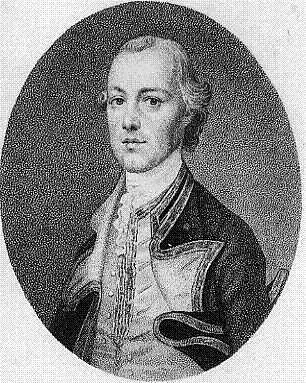Alfred Thayer Mahan - The Life of Nelson, Volume 1
Здесь есть возможность читать онлайн «Alfred Thayer Mahan - The Life of Nelson, Volume 1» — ознакомительный отрывок электронной книги совершенно бесплатно, а после прочтения отрывка купить полную версию. В некоторых случаях можно слушать аудио, скачать через торрент в формате fb2 и присутствует краткое содержание. Жанр: foreign_prose, История, foreign_edu, foreign_antique, на английском языке. Описание произведения, (предисловие) а так же отзывы посетителей доступны на портале библиотеки ЛибКат.
- Название:The Life of Nelson, Volume 1
- Автор:
- Жанр:
- Год:неизвестен
- ISBN:нет данных
- Рейтинг книги:5 / 5. Голосов: 1
-
Избранное:Добавить в избранное
- Отзывы:
-
Ваша оценка:
- 100
- 1
- 2
- 3
- 4
- 5
The Life of Nelson, Volume 1: краткое содержание, описание и аннотация
Предлагаем к чтению аннотацию, описание, краткое содержание или предисловие (зависит от того, что написал сам автор книги «The Life of Nelson, Volume 1»). Если вы не нашли необходимую информацию о книге — напишите в комментариях, мы постараемся отыскать её.
The Life of Nelson, Volume 1 — читать онлайн ознакомительный отрывок
Ниже представлен текст книги, разбитый по страницам. Система сохранения места последней прочитанной страницы, позволяет с удобством читать онлайн бесплатно книгу «The Life of Nelson, Volume 1», без необходимости каждый раз заново искать на чём Вы остановились. Поставьте закладку, и сможете в любой момент перейти на страницу, на которой закончили чтение.
Интервал:
Закладка:
Yet, however accidental, or providential, this rarely allotted portion, this crowning incident of an heroic career, it is after all but an incident. It the man has not contrived; but to it he has contributed much, without which his passing hour would have faded to memory, undistinguished among those of the myriads, great and small, who have died as nobly and are forever forgotten. A sun has set; but before its setting it has run a course, be it long or short, and has gathered a radiance which fixes upon its parting beams the rapt attention of beholders. The man's self and the man's works, what he was and what he did, the nature which brought forth such fruits, the thoughts which issued in such acts, hopes, fears, desires, quick intuitions, painful struggles, lofty ambitions, happy opportunities, have blended to form that luminous whole, known and seen of all, but not to be understood except by a patient effort to resolve the great result into its several rays, to separate the strands whose twisting has made so strong a cord.
Concerning the man's external acts, it will often happen that their true value and significance can best be learned, not from his own personal recital, but from an analytic study of the deeds themselves. Yet into them, too, often enters, not only the subtile working of their author's natural qualities, but also a certain previous history of well-defined opinions, of settled principles firmly held, of trains of thought and reasoning, of intuitions wrought into rational convictions, all of which betray both temperament and character. Of these intellectual antecedents, the existence and development may be gleaned from his writings, confirming the inference reached somewhat mechanically by the scrutiny of his actions. They play to the latter the part of the soul to the body, and thus contribute to the rather anatomical result of the dissecting process a spiritual element it would otherwise lack. But if this is so even of the outward career, it is far more deeply true of the inner history, of that underlying native character, which masterfully moulds and colors every life, yet evades the last analysis except when the obscure workings of heart and mind have been laid bare by their owner's words, recording the feelings of the fleeting hour with no view to future inspection. In these revelations of self, made without thought of the world outside, is to be found, if anywhere, the clue to that complex and often contradictory mingling of qualities which go to form the oneness of the man's personality. This discordance between essential unity and superficial diversities must be harmonized, if a true conception of his being is to be formed. We know the faces of our friends, but we see each as one. The features can, if we will, be separately considered, catalogued, and valued; but who ever thus thinks habitually of one he knows well? Yet to know well must be the aim of biography,—so to present the traits in their totality, without suppression of any, and in their true relative proportions, as to produce, not the blurred or distorted outlines seen through an imperfect lens, but the vivid apprehension which follows long intimacy with its continual, though unconscious, process of correction.
For such a treatment of Nelson's character, copious, if imperfect, material is afforded in his extensive and varied correspondence. From it the author aims, first, to draw forth a distinct and living image of the man himself, as sketched therein at random and loosely by his own hand. It is sought to reach the result by keeping the reader in constant contact, as by daily acquaintance, with a personality of mingled weakness and strength, of grave faults as well as of great virtues, but one whose charm was felt in life by all who knew it. The second object, far less ambitious, is to present a clear narrative of the military career, of the mighty deeds of arms, of this first of British seamen, whom the gifts of Nature and the course of History have united to make, in his victories and in their results, the representative figure of the greatest sea-power that the world has known.
It will not be thought surprising that we have, of the first thirty years of Nelson's life, no such daily informal record as that which illustrates the comparatively brief but teeming period of his active fighting career, from 1793 to 1805, when he at once, with inevitable directness and singular rapidity, rose to prominence, and established intimate relations with numbers of his contemporaries. A few anecdotes, more or less characteristic, have been preserved concerning his boyhood and youth. In his early manhood we have his own account, both explicit and implied in many casual unpremeditated phrases, of the motives which governed his public conduct in an episode occurring when, scarcely yet more than a youth, he commanded a frigate in the West Indies,—the whole singularly confirmatory, it might better be said prophetic, of the distinguishing qualities afterwards so brilliantly manifested in his maturity. But beyond these, it is only by the closest attention and careful gleaning that can be found, in the defective and discontinuous collection of letters which remains from his first thirty years, the indisputable tokens, in most important particulars, of the man that was to be.
The external details of this generally uneventful period can be rapidly summarized. He was born on the 29th of September, 1758, the fifth son and sixth child of Edmund Nelson, then rector of the parish of Burnham Thorpe, in Norfolk, a county which lies along the eastern coast of England, bordering the North Sea. His mother, whose name before marriage was Catherine Suckling, was grandniece to Sir Robert Walpole, the famous prime minister of Great Britain during twenty years of the reigns of the first two Georges. Sir Robert's second brother was called Horatio; and it was from the latter, or from his son, that the future hero took his baptismal name, which, in a more common form, was also that of Sir Robert's younger son, the celebrated letter and memoir writer, Horace Walpole.
Of the eleven children borne by Nelson's mother in her eighteen wedded years, only two lived to grow old. She herself died at forty-two; and her brother, Captain Maurice Suckling, of the Royal Navy, was also cut off in the prime of his age. As the earlier Nelsons were unusually long-lived, it seems probable that a certain delicacy of constitution was transmitted through the Sucklings to the generation to which the admiral belonged. He was himself, at various periods through life, a great sufferer, and frequently an invalid; allusions to illness, often of a most prostrating type, and to his susceptibility to the influences of climate or weather, occur repeatedly and at brief intervals throughout his correspondence. This is a factor in his career which should not be lost to mind; for on the one hand it explains in part the fretfulness which at times appears, and on the other brings out with increased force the general kindly sweetness of his temper, which breathed with slight abatement through such depressing conditions. It enhances, too, the strength of purpose that trod bodily weakness under foot, almost unconsciously, at the call of duty or of honor. It is notable, in his letters, that the necessity for exertion, even when involving severe exposure, is apt to be followed, though without apparent recognition of a connection between the two, by the remark that he has not for a long time been so well. He probably experienced, as have others, that it is not the greater hardships of the profession, much less the dangers, but its uncertainties and petty vexations, which tell most severely on a high-strung organization like his own.

Captain Maurice Suckling, R.N.
Читать дальшеИнтервал:
Закладка:
Похожие книги на «The Life of Nelson, Volume 1»
Представляем Вашему вниманию похожие книги на «The Life of Nelson, Volume 1» списком для выбора. Мы отобрали схожую по названию и смыслу литературу в надежде предоставить читателям больше вариантов отыскать новые, интересные, ещё непрочитанные произведения.
Обсуждение, отзывы о книге «The Life of Nelson, Volume 1» и просто собственные мнения читателей. Оставьте ваши комментарии, напишите, что Вы думаете о произведении, его смысле или главных героях. Укажите что конкретно понравилось, а что нет, и почему Вы так считаете.












